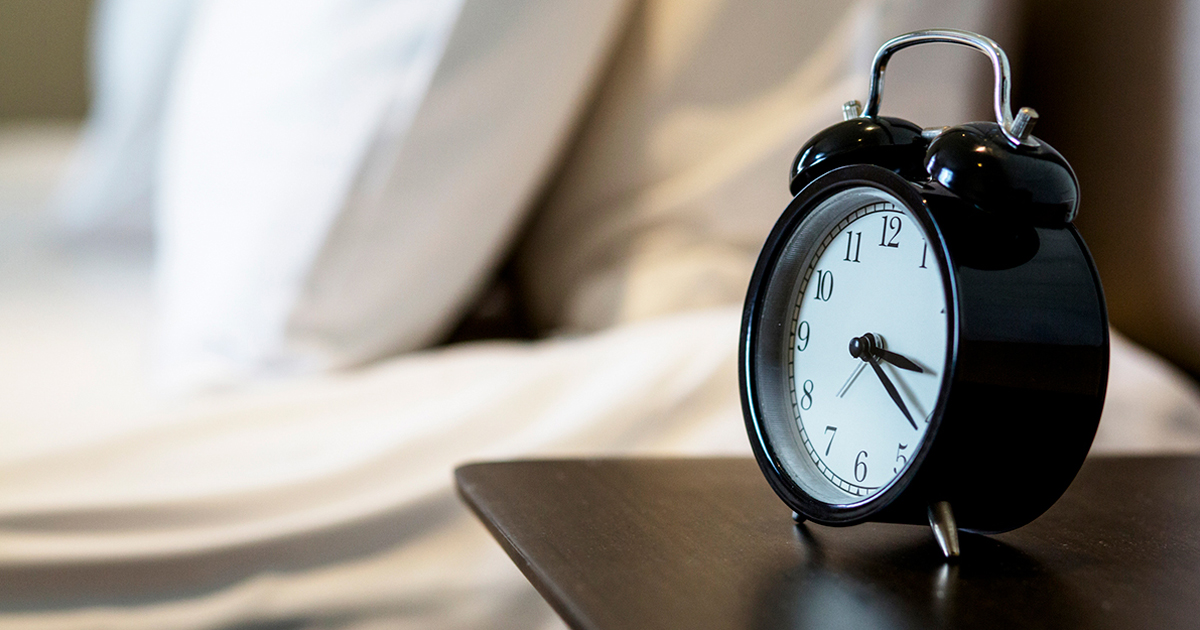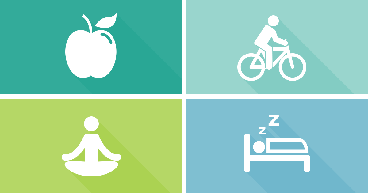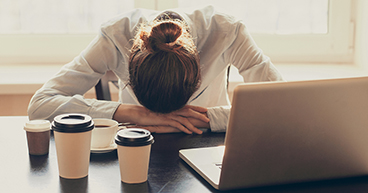
One in three American adults doesn’t get enough sleep, according to data from the U.S. Centers for Disease Control and Prevention (CDC). This was defined as sleeping less than seven hours per night, which is associated with numerous health risks. When you don’t get enough sleep, Abdul Hamid Alraiyes, MD, FCCP, Director of Interventional Pulmonology, Pulmonary and Critical Care Medicine at our Illinois hospital, pointed out that you’re more prone to excessive fatigue and a decrease in cognitive function, especially relating to memory.
“There is also the possibility of a hormone disturbance, which may increase your desire to eat and, as a result, gain weight,” Dr. Alraiyes said. In addition, sleeping less than six hours a night has been linked to a 12 percent increased risk of premature death compared to sleeping six to eight hours a night.
Sleep apnea
For some people, sleep apnea may be responsible for a lack of high-quality, truly restful sleep. This is especially true among those who sleep the recommended seven or eight hours yet still wake up feeling unrested. “Patients with obstructive sleep apnea usually have respiratory events such as snoring, followed with pauses in breathing,” Dr. Alraiyes says. “These events activate the brain, and in turn, the brain orders the body to force breathing, which can lead to the person tossing and turning throughout their sleep. With the brain having to stay active throughout the sleep cycle, that person is generally unable to reach the much-needed deeper sleep stages. The brain is essentially functioning as it would if the person were awake, which fools the patient into thinking he or she received a sufficient amount of sleep.”
If you suspect you have sleep apnea, visit your doctor or a sleep specialist. For many others, though, lack of sleep may be managed by adopting proper “sleep hygiene.” “The term ‘sleep hygiene’ was developed to help people improve their quality of sleep by offering a variety of different practices and habits that are necessary to have good sleep quality and to promote a full day of alertness,” Dr. Alraiyes says.
Tips for better sleep
He offers these top tips for better sleep hygiene:
Avoid excessive daytime napping. Not only could this interfere with your sleep, but a recent study found daytime napping is associated with an increased risk of type 2 diabetes, particularly when combined with short sleep duration (less than six hours of sleep a night). A 30-minute daily nap is acceptable, but be sure it’s not taken within four hours of your scheduled bedtime.
Avoid caffeine and nicotine four to six hours before bedtime.
Moderate your alcohol intake. While alcohol may initially help you fall asleep faster, when your body metabolizes it during the night, it may cause you to wake up and have difficulty falling back to sleep.
Exercise daily. Aerobic exercise has been found to improve sleep quality, mood and quality of life in people with insomnia, especially when combined with sleep hygiene education.
Avoid fatty, spicy and fried food before bedtime to prevent heartburn. Even better, plan to have your last meal of the day (regardless of food type) three to four hours before bedtime.
Optimize your light/dark exposures. Adequate exposure to sunlight during the day and darkness at night helps to maintain a healthy sleep-wake cycle.
Avoid the use of electronic devices in bed or close to bedtime. The bright light of a television, cellphone or tablet can stimulate your brain and disturb the sleep-wake cycle, causing insomnia in many people.
Establish a relaxing bedtime routine. Reading a book, taking a warm shower or relaxing with a cup of herbal tea and your journal may help you unwind from your day and signal to your body that it’s bedtime. For better results, practice a similar routine (such as washing your face, changing into your pajamas and then meditating for five minutes) before getting into bed each night.
For many people, making these changes alone may help you sleep better. If your sleep challenges persist, talk to your doctor.


